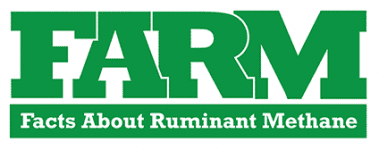Why Methane emissions do not need to reduce
Reductions in Ruminant Methane emissions in NZ are not justified
The Government and farming industry groups have entered in to an agreement that requires NZ farmers to reduce Ruminant Methane emissions, yet it has never been established on any grounds that NZ Ruminant Methane emissions should reduce.
Reductions in Ruminant Methane emissions in NZ are not justified in terms of;
Science
There is no consensus among scientists as to whether Methane emissions need to decrease and if so by how much. Ironically the global warming industry invented the concept of scientific consensus and sets great store on it. The science is not settled and the case has not been made for the need to reduce emissions. They have not even, as yet, been able to establish a scientific link between Ruminant Methane emissions and atmospheric Methane and global warming.
A comprehensive report in 2016 by Motu, Cows, Sheep and Science: A Scientific Perspective on Biological Emissions from Agriculture, which was written by a number of NZ climate scientists, found that;
To stabilise the climate, emissions of Methane only have to stop increasing, they do not need to decrease.
Published and peer reviewed research papers by Duffy(1), Allison and Sheahen (2) and Dr Will Happer and Dr William van Wijngaarden(3) state that Methane is not an important greenhouse gas because it absorbs radiant energy in such a very narrow waveband that any influence it could have is overlapped by water vapour.
Papers that conclude a reduction in Ruminant Methane emissions is needed are based on mathematical modelling and are not uncontroversial. They are in conflict with the 2016 Motu report written by NZ climate scientists and the papers by Duffy, Allison and Sheahen, and Happer and Wijngaarden.
The Motu report of 2016 also found that reducing Methane emissions now will make no difference to the global peak temperature.
The science is not settled and it is not established that Ruminant Methane emissions need to decrease.
Environment
Considerable emissions intensity gains have been made since 1990 by NZ farmers and will continue for some time but there is no likely scenario that will allow absolute reductions in Ruminant Methane emissions in NZ that does not involve reducing NZ’s livestock production or at least capping production.
With a growing global population, the irony is this means more of this demand for animal protein will be met by overseas production which comes at a higher emissions rate than NZ’s. Every tonne NZ does not produce will be produced elsewhere at higher emissions and more global warming.
Humanitarian Grounds
For NZ to reduce emissions of Ruminant Methane is a selfish act considering the increasing world demand for food. The Paris Agreement includes a clear provision that greenhouse gas reductions must not threaten food production. It is studiously ignored.
This clause was included in the agreement because the UN is very concerned not to repeat the biofuel disaster whereby climate policies encouraged the conversion of food production land to crop production for biofuel. This caused massive starvation and immense human misery and has been described as the greatest crime against humanity ever. Policies that encourage taking land away from food production whether it is for biofuel or forestry or any other purpose is in our view a crime against humanity.
Economics
Reducing Methane emissions will put cost on farmers in terms of more expensive farm management practices and lost production and will ultimately impact on NZ’s prosperity.
The cost of reducing Ruminant Methane emissions has not been quantified and until such time as it is and it can be compared to any financial benefits of not reducing emissions there is no economic argument for reducing emissions.
Speculation that NZ farmers will benefit financially from reducing emissions in terms of market accessibility and product price is no more than speculation and is based on the flawed premise that all Ruminant Methane emissions are causing global warming. FARM will be advocating to industry that it is better to address the false information about Ruminant Methane emissions which will then prevent any market resistance developing, than to reduce emissions that don’t need reducing. FARM will be advocating that the industry is best placed to determine its own place in the market and not the Government. FARM will also be instrumental in discrediting carbon footprint calculators that falsely calculate that animal protein produces more emissions than plant based protein.
On the basis of science and economics it has not been established that Ruminant Methane emissions need to reduce and on environmental and humanitarian grounds there is a case for increasing Ruminant Methane emissions.
